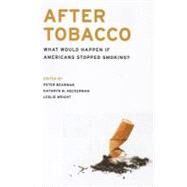- ISBN: 9780231157773 | 0231157770
- Cover: Paperback
- Copyright: 7/12/2011
States have banned smoking in workplaces, restaurants, and bars. They have raised tobacco tax rates, extended "clean air" laws, and mounted dramatic anti-smoking campaigns. Nevertheless, tobacco use remains high among Americans, with one out of five adults smoking. Health professionals now realize that significantly reducing these rates requires bolder measures, including a direct confrontation with the fear that controlling tobacco more strictly carries enormous social and economic consequences. Retail and hospitality businesses worry that smoking bans and excise taxes will cripple profit, and with tobacco farming and cigarette manufacturing concentrated in southeastern states, policymakers in Kentucky, North Carolina, Virginia, and elsewhere fear the impact on the regional economy. These concerns are not necessarily unfounded, but there has been no comprehensive survey of the impact of tobacco control across the nation. This book, the result of research commissioned by the American Legacy Foundation and Columbia University's Institute for Social and Economic Research and Policy, considers the economic impact of reducing smoking rates on tobacco farmers, cigarette factory workers, the southeastern regional economy, state governments, tobacco retailers, the hospitality industry, and nonprofit organizations who might benefit from the industry's philanthropy. It also weighs how reduction in smoking will affect mortality rates, medical costs, and Social Security. Concluding essays consider the implications of more vigorous tobacco control policy for law enforcement, smokers who face social stigma, the mentally ill who may cope through tobacco, and disparities in health by race, social class, and gender.







